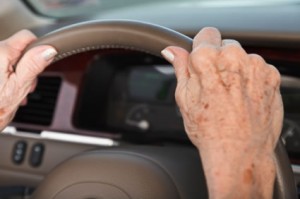
istockphoto
Researchers reviewed databases for adults age 65 and older in Ontario, Canada, between January 1, 2000, and October 31, 2007. A total of 159,678 individuals had a crash during the study, of whom 7,393 (5 percent) received an antidepressant in the month prior to the crash, but antidepressants alone did not lead to a heightened risk of a motor vehicle crash. Rather, risk was associated with crashes in which the individual used another strong, centrally acting medication, such as a benzodiazepine or anticholinergic as well. Noted limitations to the study included a lack of information about the dose of the antidepressants and the possible effects of dementia. Much more research is needed on the effect of depression and antidepressants on driving, the researchers noted.
